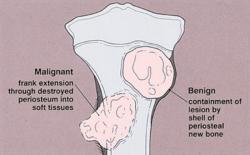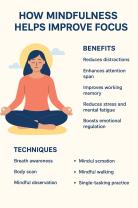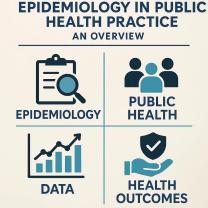What is good diet for beginners?
A balanced diet is essential for overall health and well-being. For beginners, adopting a healthy eating plan doesn't have to be complicated. Here's a beginner's guide to a balanced diet:
Include a Variety of Food Groups:
- A balanced diet includes foods from all the major food groups: fruits, vegetables, grains, protein, and dairy (or dairy alternatives). Each food group provides different essential nutrients that contribute to overall health.
Portion Control:
- Pay attention to portion sizes to avoid overeating. Use smaller plates, bowls, and utensils, and be mindful of your body's hunger and fullness cues.
Eat Plenty of Fruits and Vegetables:
- Aim to fill half your plate with fruits and vegetables. They are rich in vitamins, minerals, fiber, and antioxidants. Choose a variety of colors to ensure a broad range of nutrients.
Choose Whole Grains:
- Opt for whole grains over refined grains. Whole grains like brown rice, quinoa, whole wheat, and oats contain more fiber and nutrients.
Include Lean Proteins:
- Incorporate lean sources of protein, such as poultry, fish, beans, lentils, tofu, and nuts. These provide essential amino acids necessary for building and repairing tissues.
Healthy Fats:
- Include sources of healthy fats in your diet, such as avocados, nuts, seeds, and olive oil. These fats are important for brain health and the absorption of fat-soluble vitamins.
Limit Added Sugars and Salt:
- Minimize the intake of foods and beverages high in added sugars and sodium. This includes sugary drinks, candies, processed snacks, and high-sodium processed foods.
Stay Hydrated:
- Drink plenty of water throughout the day. Water is essential for various bodily functions, including digestion, nutrient absorption, and temperature regulation.
Plan Balanced Meals:
- Structure your meals to include a mix of carbohydrates, proteins, and fats. This can help maintain stable blood sugar levels and provide sustained energy throughout the day.
Limit Processed Foods:
- Reduce the consumption of highly processed foods, which often contain added preservatives, unhealthy fats, and excessive salt. Instead, choose whole, minimally processed foods.
Listen to Your Body:
- Pay attention to hunger and fullness cues. Eat when you're hungry and stop when you're satisfied. Avoid mindless or emotional eating.
Gradual Changes:
- If you're transitioning to a healthier diet, make changes gradually. This makes it easier to adopt new habits and increases the likelihood of long-term success.
Remember that individual nutritional needs may vary, and consulting with a healthcare professional or a registered dietitian can provide personalized guidance based on specific health goals, dietary preferences, and any underlying health conditions.
What constitutes a good beginner's diet plan?
A good beginner's diet plan should be simple, sustainable, and focus on providing your body with the nutrients it needs to thrive. Here are some key principles to consider:
Balance and Variety:
- Include all food groups: Aim for a rainbow on your plate! Every meal should have fruits, vegetables, whole grains, and lean protein. This ensures you're getting a variety of essential vitamins, minerals, and fiber.
- Focus on whole foods: Prioritize unprocessed, whole foods like fruits, vegetables, legumes, whole grains, and lean meats over processed foods high in sugar, unhealthy fats, and refined carbohydrates.
- Portion control: Be mindful of serving sizes. While you can indulge in your favorite treats occasionally, focus on moderate portions of nutrient-rich foods.
Healthy Fats and Carbs:
- Choose healthy fats: Include sources of healthy fats like avocado, nuts, seeds, olive oil, and fatty fish in your diet. These provide essential nutrients and help you feel full longer.
- Opt for complex carbs: Choose whole grains over refined grains. Whole grains like brown rice, quinoa, oats, and whole-wheat bread offer fiber, vitamins, and minerals along with sustained energy.
Hydration and Essential Nutrients:
- Drink plenty of water: Aim for 8 glasses of water per day, or more if you're active or in hot weather. Water keeps you hydrated and supports numerous bodily functions.
- Consider supplements: Consult your doctor about incorporating supplements like Vitamin D or iron if you're at risk for deficiencies.
Making it Sustainable:
- Don't deprive yourself: Enjoy your favorite foods in moderation. Deprivation often leads to cravings and binge eating.
- Cook at home: Preparing your own meals allows you to control ingredients and portion sizes.
- Plan and prep: Planning meals and snacks for the week can help you make healthier choices when you're busy.
- Listen to your body: Eat when you're hungry and stop when you're full. Don't force yourself to eat if you're not hungry.
Remember: A good beginner's diet plan is flexible and adaptable. Don't be afraid to experiment, find what works for you, and make adjustments as needed. It's about making healthy choices most of the time and enjoying life without obsessing over every bite.
Here are some additional resources that you might find helpful:
- The Dietary Guidelines for Americans: https://health.gov/our-work/nutrition-physical-activity/dietary-guidelines
- The Academy of Nutrition and Dietetics: https://www.eatright.org/
- The United States Department of Agriculture (USDA): https://www.myplate.gov/
I hope this information helps you create a healthy and sustainable diet plan for your needs!













